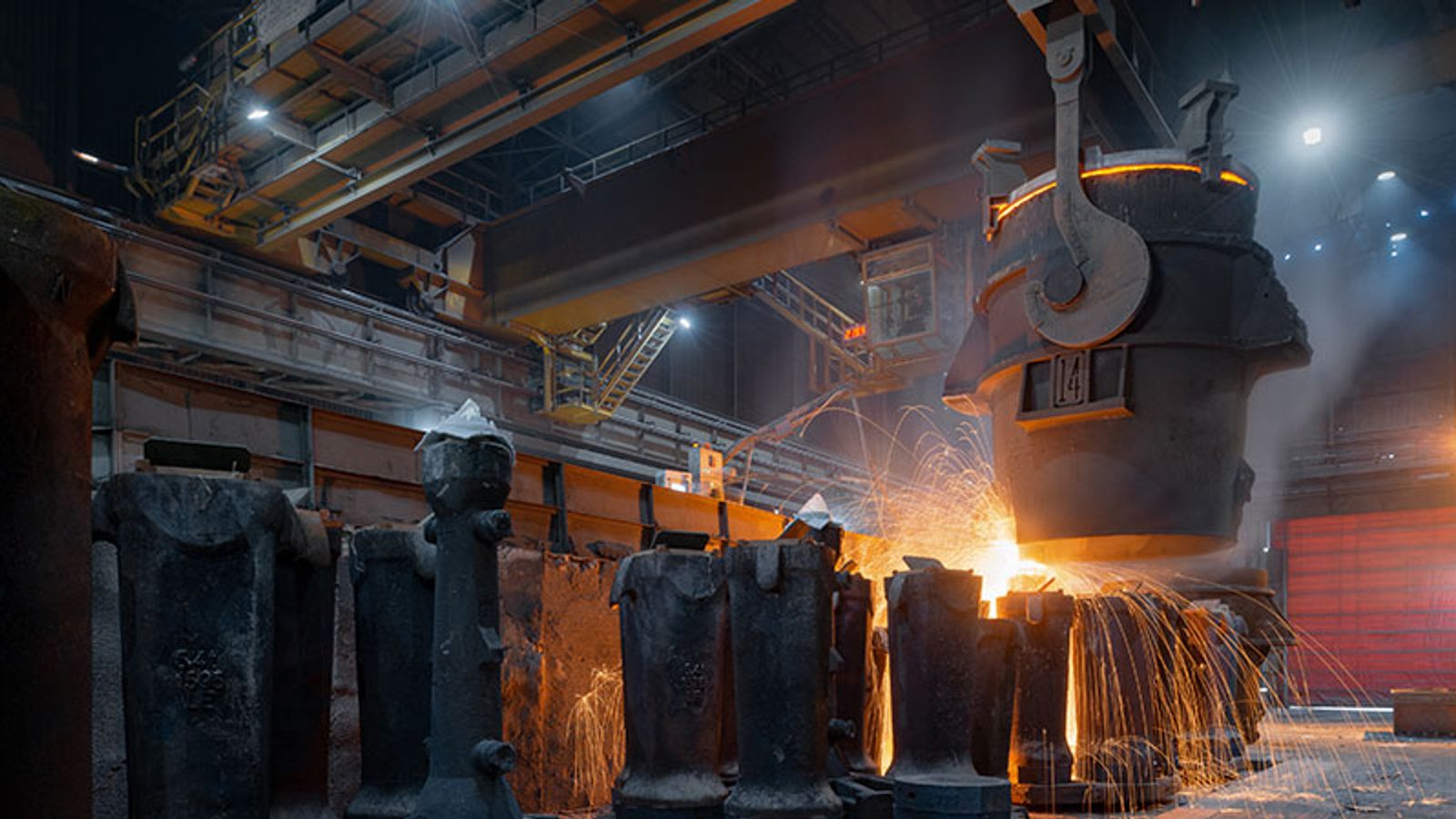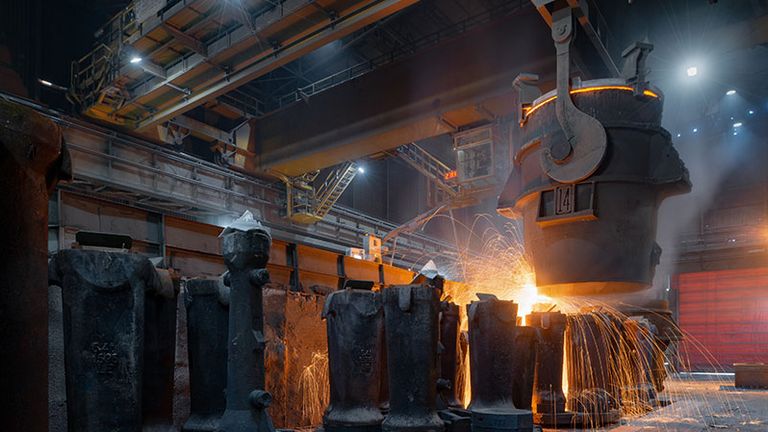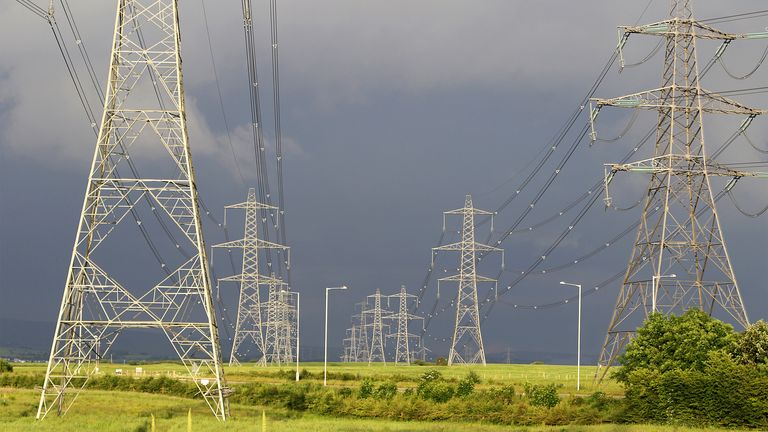Energy bills: Intensive industry users secure more financial support amid record costs
The cost of battery production is to be supported for the first time under the compensation scheme, designed to maintain competitiveness at a time when electricity bills are soaring.
Friday 29 April 2022 02:13, UK
Additional financial support has been announced for industry using high quantities of electricity as costs hit record highs and harm competitiveness.
The government said it was extending the Energy Intensive Industries Compensation Scheme for another three years and more than doubling its budget in the face of the financial pain being felt.
More than £2bn has been spent since 2013 supporting firms such as steel and paper manufacturers who have long complained of crippling energy costs – recently exacerbated by the effects of Russia’s war in Ukraine.
Ministers said that car battery manufacturers were to be eligible for support for the first time – reflecting the sector’s importance to the new green transport future as petrol and diesel-powered cars are phased out.
The announcement was made against a backdrop of fixed price power deals, utilised by most energy intensive users, drawing to a close leaving firms facing the prospect of finding new terms following a period of record raw prices.
The market is hammering households and businesses alike with unprecedented prices.
Industry Minister Lee Rowley said: “We want to keep the UK at the forefront of manufacturing, helping our energy intensive industries remain competitive and sustainable for the long term, and continuing to power our economy with thousands of jobs across the country.
“We are not only extending our support through the compensation scheme, by offering a greater level of compensation to eligible firms, we are delivering more relief from electricity costs for these industries.”
The scheme provides businesses with relief for the costs of the UK Emissions Trading Scheme and Carbon Price Support mechanism in their electricity bills.
But the CBI argued that ministers should go further.
The business lobby group’s programme director for decarbonisation, Tom Thackray, said: “Rising energy prices continue to weigh heavily on firms’ cashflow and production volumes, which are facing higher costs than their international counterparts. This compensation will go some way to closing that gap.
“The government must now build on this package by actioning further support measures announced in the recent British Energy Security Strategy and providing wider cashflow support through the Recovery Loan Scheme.”
Gareth Stace, the director of industry body UK Steel, said: “The three-year extension of the EII compensation scheme and the increase in the level of relief provided by it delivers on a long-standing industry ask and gives the UK steel sector a much-needed reduction in electricity costs.
“This increase in compensation is a key priority for the steel sector and is a much-needed step to tackling the industrial electricity prices that hold the UK steel sector back from competing with our European counterparts.”
Peter Rolton, the executive chairman of Britishvolt which aims to open the UK’s first battery gigafactory in Northumberland in 2024, added: “This is a positive step from UK government, clearly recognising the strategic importance of battery manufacturers, and other industry that has intensive energy needs, on the roadmap to net zero, and the urgent need for them to become and remain internationally competitive in light of high energy bills.”




































